SEO vs. PPC: Which Should You Use?
Are you still struggling with whether to do SEO or PPC? You have come to the right place.
Three years ago, I was working at a startup.
Their marketing budget was limited, and I had to face a choice: should I do SEO or PPC?
Since I had no practical marketing experience and lacked interest in content creation, I decided to do SEO. I applied the strategies I learned from SEO blogs to our products and eventually successfully ranked our website at the top for several keywords.
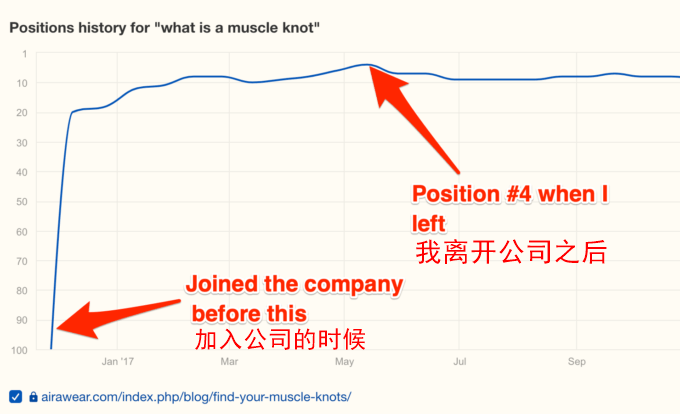
Would it be better to use PPC from the beginning? I wonder, but no one knows.
Luckily, I’ve learned a lot about both since then. In this post, I’ll compare the pros and cons of SEO and PPC, explain how you can decide which one is better for your business, and show you how to use them with Ahrefs .
But first, let's cover the basics.
SEO
Search engine optimization (SEO) is the process of optimizing your website and web pages so that they rank in the organic search results of search engines like Google and Bing .
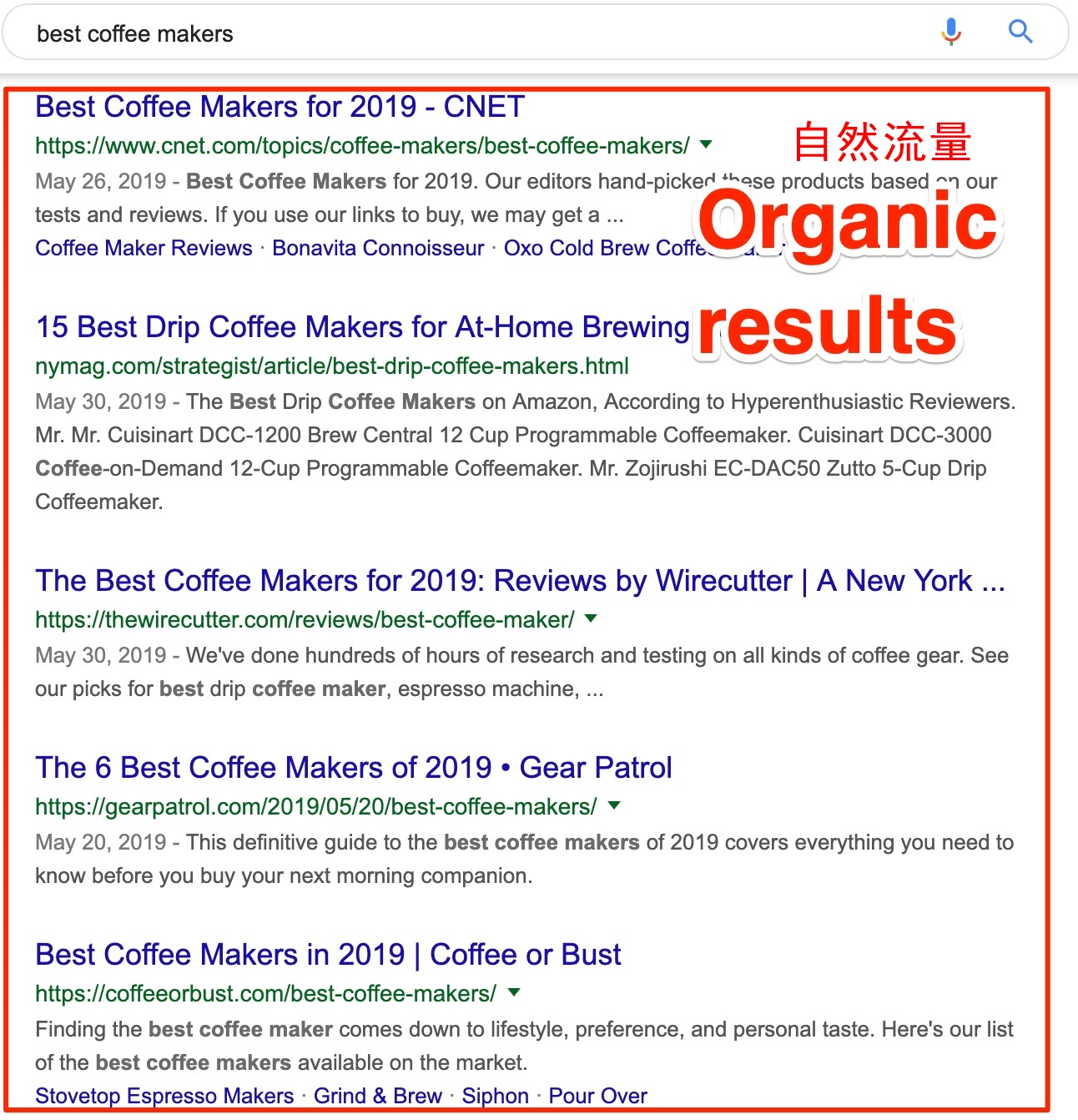
The most rewarding thing about doing SEO is that you don't have to pay to appear here. The search engine ranks your website based on its set of algorithms by calculating the quality and relevance of the page.
So a big part of SEO is figuring out what search engines consider important and then optimizing your website and pages accordingly.
HINT.Want to learn how SEO works? You can follow this simple tutorial .
advantage
Let’s look at the advantages of SEO:
1. Organic traffic is more sustainable
As long as you can rank high in Google for the keywords you need , it can bring a steady stream of search traffic to your website.
If SEO is done successfully, it will look like this:

Unlike other marketing channels, you can give your entire marketing team a break and traffic will still continue to come in.
Paid marketing is like a faucet. Turn on the faucet and traffic will flow. Once the faucet is turned off (i.e. you’ve used up your advertising budget), your traffic will dry up.
The same is true for social media. Social media is also a pay-to-play game these days. Without paid promotion, your user acquisition is likely to decline.
That’s why many marketers consider SEO as one of their best channels for acquiring long-term, scalable users.
2. SEO is also usually cheaper in the long run
The Ahrefs blog ranks for over 120,000 keywords and gets us around 240,000+ search visits a month.
If we were buying traffic through PPC, it would cost us an estimated $733,000 per month (or $8.8 million per year).

Given that the content production team is only three or four people and none of us have $2 million in salaries, it can be said that SEO is very low cost in the long run.
shortcoming
Here are some of the disadvantages of SEO.
1. SEO is time-consuming
In 2017, we conducted a study to find out how long it takes to rank in Google . We randomly selected 2 million pages and tracked the position for all the keywords they ranked for.
The result: Only 5.7% of the pages ranked in the top 10 for at least one keyword within a year .

Even most of these "lucky" 5.7% take 2 to 6 months to make it into the top 10.

As you can see, SEO is time-consuming.
If you’re short on time, SEO may not be the best funnel strategy for you.
2. SEO requires unique and authoritative content
Imagine, if you were preparing to make a delicious dish of jam duck, who would you choose to learn from?
Marco Pierre White or me? The answer is obvious. With Marco you will create a perfect dish. Choosing me will only burn it.
The same is true for people online. When it comes to consuming, sharing, and linking to other people’s content, people prefer to learn from experts .
Therefore, to get an edge in your search, you may need expertise.
If you’re an expert in a certain niche, great! You can create the content yourself. If you don’t want to, you can hire someone to create it for you. You can even interview the authorities, like Malcolm Gladwell did for his new book.
The problem is that these solutions are too expensive and time-consuming for small and medium-sized businesses with limited resources.
PPC
Pay-per-click (PPC) is an advertising model where you pay for every click that comes to your website. It is often associated with search engine advertising like Google Ads .
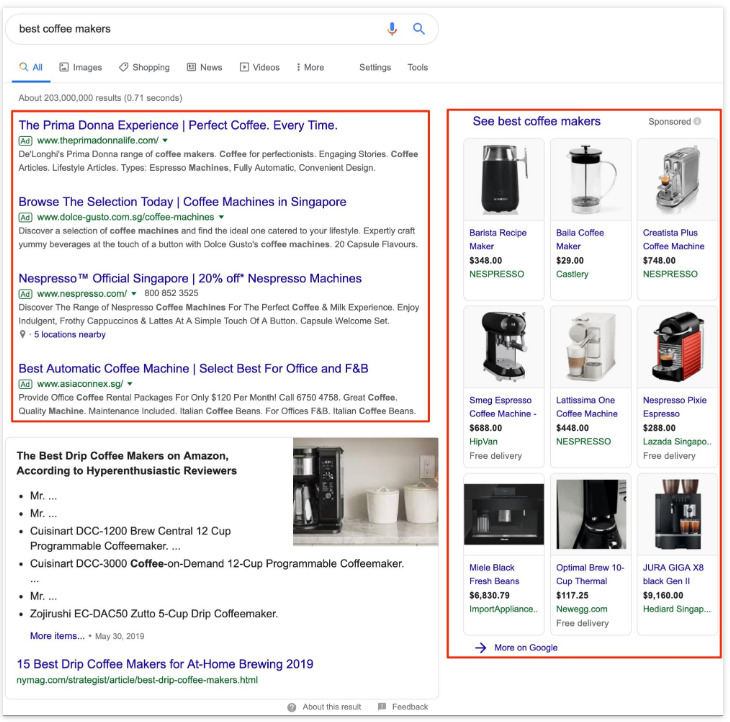
Today, most social media networks like Facebook, Twitter, and Quora have also adopted PPC as their primary business model.
advantage
What are the advantages of PPC?
1. PPC is fast
With SEO, you may have to wait days, weeks, or even months. With PPC, it’s much faster.
You can go to any advertising platform and start your advertising campaign instantly.
2. PPC can be precisely targeted
With PPC, you can work with different types of data (demographic, geographic, etc.).
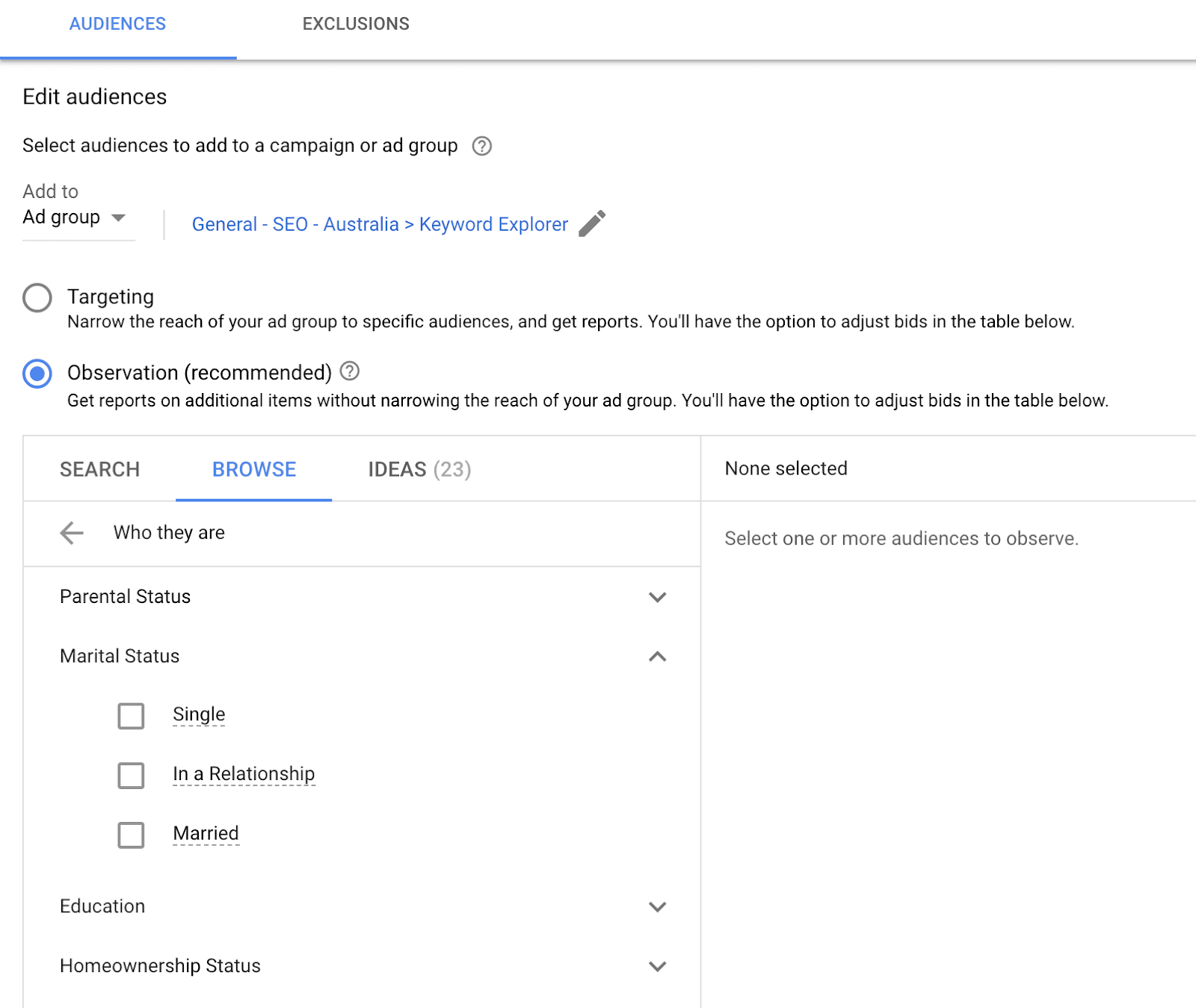
Therefore, you can control the payment only for those who have demand for your website.
3. PPC allows for rapid experimentation
The essence of PPC is fast feedback. You can build a campaign, run A/B tests, and monitor the results to quickly find out what works and what doesn’t.
In contrast, SEO is slower, making it difficult to attribute success or failure to any single factor or change in strategy.
shortcoming
PPC isn’t all flowers and sunshine, there are some downsides.
1. PPC is too expensive
If you’re in a competitive industry like insurance, PPC can quickly become particularly expensive.

For example, if you bid on the keyword 'car insurance,' your average CPC would be as high as $40.
This is a personal experience from DropBox in 2009. They used Google Ads to promote their products, and soon found that their cost per acquisition (CPA) was between $233 and $388 . The worst part was: their product was only selling for $99.
So they lost a lot of money on Google Ads.
2. PPC effectiveness will decrease
While PPC is easy to scale, the effect of scaling up may be the opposite.
As Andrew Chen said;
“ The longer your campaign runs, the less effective it becomes — when people see your ads too often, the message becomes stale and the freshness wears off.”
Ad decay is real. You have to continually create new ad copy, images, and refresh existing ads to keep them effective in the long term.
3. You need money to make money
With PPC, you will need to spend money to start running ads. Chances are you will need to spend a lot of money in the first few months just to figure out how to optimize your ads.

Let’s face it: optimizing your PPC campaigns takes time.
If you’re a startup with a $0 marketing budget, it’s going to be very expensive to run a profitable ad campaign.
SEO vs. PPC: Which is Better for My Business?
The real answer: It depends on the situation.
Neither is better or worse than the other. Both are legitimate sources of traffic.
All we can say is that in certain situations, one channel may make more sense than another.
For example, the following situations:
1. You have an innovative product
To get organic traffic, you need to target topics that people are already searching for. But if you’re creating a disruptive company with a revolutionary product, chances are no one is searching for it.
Recall Henry Ford’s famous quip, “If I had asked people what they wanted, they would have said faster horses.” If Google had existed back then, people would have been searching for “how do I make my horse run faster,” not “car.”
Before Uber was founded in 2009, no one searched for “order a ride.”

In this case, you’d be better off leveraging social media PPC to build awareness for your product or service.
2. You are preparing for a press conference/one-time sale
Are you planning to promote a one-time campaign on Kickstarter? SEO may not be the right strategy.
SEO takes time. Your campaign may be over before you even start ranking.
In this case, you may want to consider using PPC or other channels like influencer marketing .
3. You are promoting commercial content
Generally speaking, people don’t want to link to commercial content such as landing pages.
To rank first in organic search, you have to consider using a middleman strategy. Here’s an animation that explains how it works:

If you need results fast, consider using PPC, as this will drive traffic directly to your landing page for conversions.
4. You are building a website to sell
According to EmpireFlippers , this is the formula for calculating a website’s value:
If you want to sell your website, you should "manipulate" multiple websites to your advantage.
How? Use SEO.
What people like about SEO is that you don’t have to constantly monitor your campaigns. Once you rank on Google for your ideal keywords, there’s very little work you need to do, which is much better than PPC.
One reason is the vicious cycle of SEO.
Ranking #1 means that over time, more and more people are naturally linking to your site. And since links are correlated with rankings, your ranking will continue to rise.

With PPC, there are lapses and scaling effects. You have to constantly optimize and refresh your campaigns so they don’t break or stay fresh. Because once a campaign lapses, your business can die overnight.
This is not a good thing for advertisers.
So if you’re in the website flipping business, you might be better off focusing on SEO.
Recommended reading: How much is your website really worth? A simple guide to estimation
Do you feel the same way in these scenarios? Then quickly experiment to find out what works best for your business.
To do this, I recommend using The Bullseye Framework by Justin Maresh (founder) and Gabriel Weinberg (CEO & founder, Duckduckgo), which is a simple framework that can help you find your way.
In three steps:
- Brainstorm potential channels. Who are your target customers and where can you find them? For example, if you sell jewelry online, Pinterest Ads might be a viable channel.
- Run a small test to see if the idea is right. Before you invest the majority of your budget into a marketing channel, make sure it can bring you ROI. For example, you can test a small PPC ad on Pinterest to see if it brings in sales.
- Double down on your best channels. When you test channels simultaneously, one channel will emerge as the “winner” (i.e., the one with the best ROI). That’s the channel you should double down on.
If you want to learn more about the Bullseye framework, read this guide or their book Traction .
SEO and PPC: Using Them Together
Good companies use both SEO and PPC because they complement each other. After all, if both channels are profitable, why wouldn’t you want to do both?
That’s exactly what we do at Ahrefs.
SEO is our second largest source of users (after word of mouth). But we don’t ignore paid traffic. Both channels are effective, so we take advantage of the best of both.
Here’s what we did:
1. Build awareness using Facebook Ads
Each post we publish takes an average of 10 to 20 hours to write, and to justify that effort, we run Facebook ads to get it in front of as many interested people as possible.
Running PPC ads also seems to help us get backlinks, even if that’s not our primary goal.
This makes sense. After all, no one is going to link to something they don’t even know about. PPC advertising can help here.

For example, the SEO audit guide advertised above currently has 519 backlinks from 239 referring domains.

The funny thing is, we didn’t do any advertising for it. We only promoted it through email subscriptions and Facebook ads, which means the backlinks appeared because the right audience saw it.
2. Remarketing
Remarketing helps you target visitors who have left your website. This gives you the opportunity to convince visitors to come back and reconsider a purchase.
This works great for Ahrefs.
Our blog brings us a lot of search traffic.

Many people who read our articles decide that Ahrefs is the tool they want and sign up right away.

However, most people reading our blog posts don’t realize that we have a 7-day trial .
So, we’ll remarket to offer them a 7-day free trial based on the pages they visited on our website.

As you can see, it's not really that complicated.
We mainly use Facebook ads for retargeting. But keep in mind that this is not the only platform that allows remarketing.
There are also many PPC platforms that support remarketing for you to choose from.
HINT.As of July 2019, we have stopped running most retargeting ads on Facebook due to privacy concerns.
3. Track the keywords your competitors are bidding on
Imagine if you could see the keywords your competitors are bidding on in Google Ads? That way, you could quickly find potentially profitable keywords and go after them through PPC or SEO.
Luckily, you can. Simply paste your competitor domain into Site Explorer and go to the PPC Keywords report.
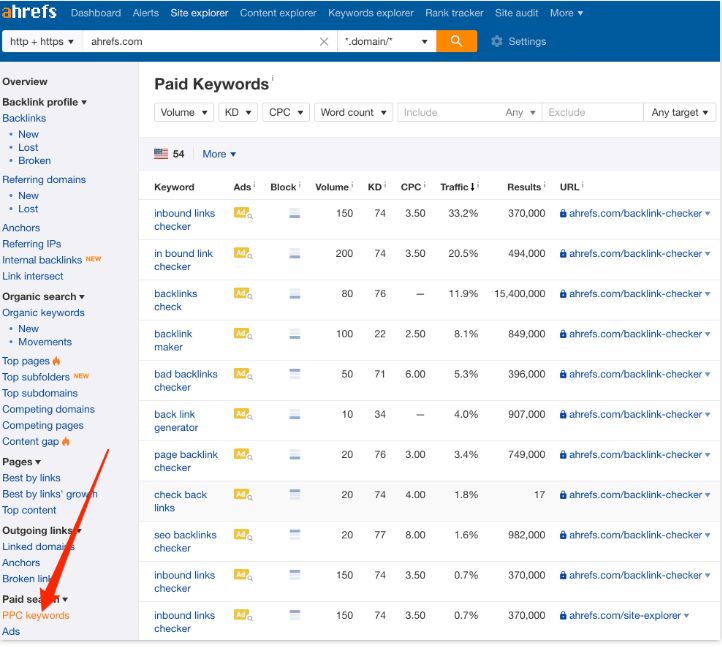
HINT.: Use the Exclude filter to exclude brand keywords.
Here you’ll see the keywords your competitors are bidding on, the landing pages they’re driving traffic to, and the ad copy they’re using.
Consider that keyword targeting through PPC or SEO can also be profitable.
Thoughts at the end
Imagine if SEO is an apple and PPC is an orange. Can you say that apples are better than oranges, or vice versa?
Both are fruits, both provide vitamins, and both are also very different.
If you want a perfect diet, you should use both.
Regardless, you should take advantage of every marketing channel that works for your business.
